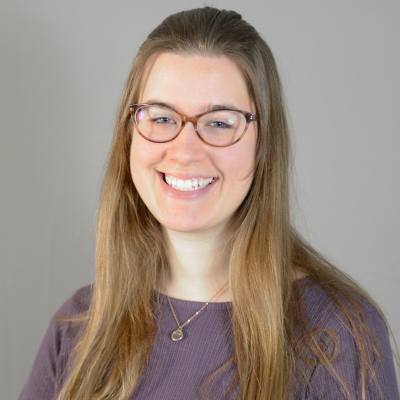Heather Lambert, owner of Clearhope Counseling and Wellness—which opened a Tomball office in mid-August—said prior to Clearhope’s opening, there were no mental health providers in the Greater Tomball area accepting Medicaid and only two accepting health insurance.
“Clearhope exists to remove access barriers to high-quality mental health services. So for students and families who rely on Medicaid for health benefits in Tomball, there [were] no options,” Lambert said.
The counseling center, which accepts health insurance—including Medicaid—offers family, couples, group and individual counseling, and is in the process of partnering with Tomball ISD to provide services as well, Lambert said.
At the same time, Montgomery County Precinct 1 Constable Philip Cash—who helps head the county’s mental health unit and crisis intervention team—told Montgomery County Commissioners Court on July 26 the unit received 4,783 calls from January-June this year, already surpassing the 4,765 calls received in 2021. The county expanded the unit in August 2021 with federal American Rescue Plan Act funding.
According to project and expenditure reports from the U.S. Department of the Treasury, Montgomery County had budgeted $8.16 million for ARPA-funded mental health initiatives as of March 31.
Harris County, meanwhile, introduced a $14.3 million ARPA-funded initiative Aug. 25 to combat the growing mental health crisis, including investing in workforce development for behavioral health centers and mental health supports for youth.
The initiative follows an $8.93 million three-year initiative also funded by ARPA dollars the county unveiled in October 2021 to provide mental health education and training to members of 10 ZIP codes, not including Tomball.
“Without significant investments in preventive mental health care, we will continue to see overcrowded jails, increases in violent crime, substance use-related deaths, suicides [and] children struggling with school success,” Harris County Judge Lina Hidalgo said during a press conference on mental health Aug. 25.
Statewide, a 2022 report by Mental Health America ranks Texas last out of 51 states and territories for access to mental health care. As such, local groups such as Montgomery County’s volunteer-based Behavioral Health and Suicide Prevention Task Force said they are trying to improve access. The task force was created by Precinct 1 Judge Wayne Mack in 2020, according to previous reporting.
The task force began a gap analysis Sept. 20 to determine what services are needed in the county, said Brenda LaVar, a member of the task force and president of the board of directors for the National Alliance on Mental Illness Greater Houston.
“When [families] can’t find help, that’s a real problem,” she said.
Uptick in mental health demand
According to Cash’s report to commissioners, calls for mental health services to Montgomery County’s mental health unit are projected to increase to 9,566 calls by the end of 2022, a 101% increase from 2021. Meanwhile, Evan Roberson—executive director of Tri-County Behavioral Healthcare, a federally qualified health center—said statistics show as of June, the center had served 4,251 people in crisis—3,426 adults and 825 children—with the center seeing more children in the first six months of 2022 than in the four full years prior. However, Roberson said staffing shortages caused the center’s crisis stabilization unit to close in November. He said people admitted to the 16-bed unit are generally uninsured and require hospitalization.
Roberson told commissioners Aug. 3 it would require nearly $2 million per year to restaff the program, but he said he does not want to staff full-time positions using temporary ARPA funds.
“[Having those beds] is one of the biggest needs for this county, for law enforcement,” Precinct 3 Commissioner James Noack said Aug. 3. “Not having them is a disservice.”
In Harris County, Andrea Usanga—executive director of the Network of Behavioral Health Providers, a collaborative of 40 providers in the Greater Houston area—said during the county’s Aug. 25 press conference that staffing challenges have exacerbated the demand for mental health services.
“At the exact same time where we are seeing an unprecedented number of people who are seeking help for mental health and substance use treatment, we are in a crisis situation with our behavioral workforce. We don’t have enough people entering into the field, and we have far too many people who are leaving the field,” Usanga said.
Barriers to access
In addition to staffing challenges, local organizations said lengthy waiting lists, a lack of providers and the cost of services are barriers to receiving mental health services.
A 2022 report from Mental Health America shows there were 830 residents per mental health provider in the state, ranking Texas second lowest for provider availability in the U.S.
Sherry Burkhard, director of education for Mosaics of Mercy—a nonprofit based in Magnolia that helps residents find mental health services—said providers often have a waiting list for new clients.••“Since [the peak of the pandemic], our call volume has leveled out, ... but what we have seen is an increase in the complexity in calls and the difficulty in connecting to providers,” she said.
In Tomball, Lambert said a client’s ability to pay and find an insurance-accepting provider complicates access as the out-of-pocket cost per session may range from $125-$250.
According to NAMI, 43.4% of adults in Texas reported symptoms of anxiety or depression in February 2021, of which 26.4%—or 839,000 adults—were unable to get needed counseling or therapy with cost cited as the barrier for 45.3% of those.
“I think it’s similar across all of Greater Houston ... that mental health care is difficult to come by unless you’re extremely wealthy and resourced and can access fee-for-service,” Lambert said. “The wait times right now [for Medicaid-accepting providers], even in Harris County, closer to the city of Houston, can be up to a year for an evaluation. Mental health doesn’t wait a year.”
Local response
To further address the need for services, Erica Cleveland, owner of Mindful Transformations Counseling, expanded to a Tomball office in September. The firm offers individual, family and couples counseling and play therapy, she said.
“Tomball doesn’t have many counseling centers. And being ... a new member of [the Greater] Tomball [Area Chamber of Commerce], some of the business owners were coming up to me ... saying, ‘Oh my, we don’t have ... a lot of counseling here,’” she said.
TOMAGWA Healthcare Ministries CEO Timika Simmons said she is in talks with Mindful Transformations Counseling, among other providers, to pilot mental health services for TOMAGWA’s uninsured patients as there are no existing providers to refer patients to.
“There’s already a lack of services of mental health within this region for those with insurance. ... For our [indigent] population, there’s not even places nearby that they can go to,” Simmons said.
She said she hopes TOMAGWA can begin partnering with a mental health provider in the next few months and develop a more robust program in a year. Adding mental health services is required for TOMAGWA to apply to become a federally qualified health center, a process which began in 2020 to allow the clinic to receive additional state and federal funding.
“We want to have a comprehensive service line; we don’t want to create a knee-jerk response to the need, but we want something that will impact our patients and create change,” Simmons said.
At the same time, LaVar said Montgomery County’s mental health task force is working to complete its gap analysis in December with a recommendation of priority initiatives and longer-term needs to present ahead of the Texas legislative session in January.
“What’s going to make the greatest impact right now?” LaVar said. “We’re going to produce for this county what we need right now and what we need to look at in the future.”







